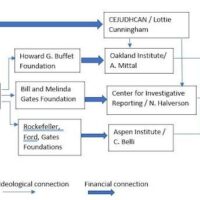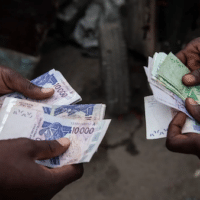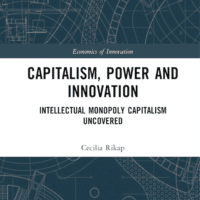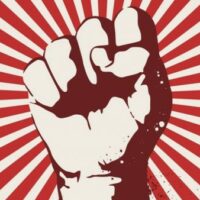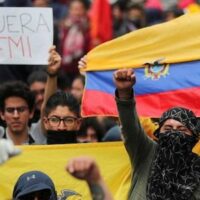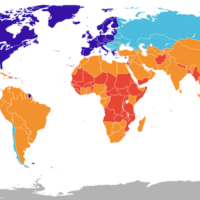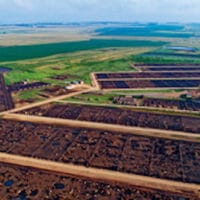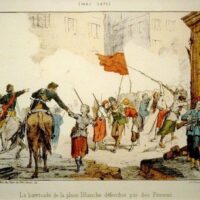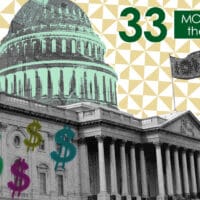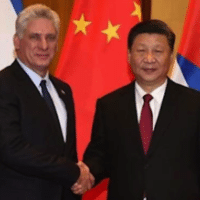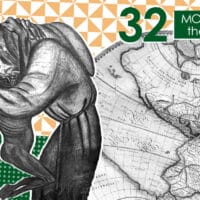-
How billion-dollar foundations fund NGOs to manipulate U.S. foreign policy: A case study from Nicaragua
U.S. foreign policy is increasingly promoted by billionaire-funded foundations. The neoliberal era has created individuals with incredible wealth who, through “philanthropy,” flex their influence and feel good at the same time.
-
African financial independence is a threat to imperialism
African leaders had come to recognize the various factors that hinder the continent’s development and seriously jeopardize the future of its peoples. The Abuja Treaty was put in place to increase economic self-reliance, promote self-sustained development, and raise the living standard of African peoples.
-
The Tech-VC Bloc is key to understanding why work is getting worse
The promise of digital transformation is anchored in a discourse that the tech sector invented along with venture capital (VC) when they came together to lobby for reducing capital gains taxes in the late 1970s.
-
Latin America and the Caribbean are facing a serious debt crisis Part 4
The series continues with analyses of how indebtedness developed in other regions of the Global South.
-
Intellectual monopoly capitalism and its effects on development
What is new with contemporary (global) leading corporations? If gigantic monopolies are a repeated phenomenon in capitalism’s history, why all the fuss we see every day regarding high concentration?
-
Cryptocrap
Bitcoin’s growth from just being a tech curiosity was driven by popular discontent with banks and banking systems, mainly in the U.S. after 2008.
-
Principles of radical political economics
The starting point for radical political economists is agreement on the need to oppose injustice and oppression and the conviction that a theoretical understanding of contemporary societies can contribute to the political movements necessary to address them.
-
Ecuador’s poisoned loans from the World Bank and the IMF
Ecuador provides an example of a government which officially decided to investigate the process of indebtedness so as to identify illegitimate debt and suspend its repayment.
-
IMF, World Bank must support developing countries’ recovery
The COVID-19 pandemic continues to take an unprecedented human and economic toll, wiping away years of modest and uneven progress towards the Sustainable Development Goals (SDGs).
-
Amazon plays dirty in Bessemer Union Drive: Mass solidarity needed
Everyone knew that Amazon would fight the union drive in one of its fulfillment centers in Bessemer, Alabama. But the company’s union-busting tactics are drawing more scrutiny as the final days for workers to mail in ballots draw near.
-
Food Justice files PLANET FARM
As industrial agriculture encroaches into the last wild places of the Earth, it’s unleashing dangerous pathogens. Time to heal the metabolic rift between ecology and economy, suggests Rob Wallace.
-
Financial press fears Brazilians will be allowed to elect president of their choice
The Brazilian Supreme Court this month dismissed all charges against former President Luis Inacio “Lula” da Silva. A towering figure in national politics, Lula was the country’s president for eight years between 2003 and 2011.
-
The Paris Commune of 1871, banks and debt
150 years ago, on 18 March 1871, the Paris Commune was born.
-
Heterodox Properties with Lua Kamal Yuille
Money on the Left is joined by Dr. Lua Kamal Yuille to discuss heterodox economics, property law & the politics of vulnerability. We chat with Yuille about her path from law to heterodox economics, and, more specifically, about how Modern Monetary Theory has variously shaped and affirmed her critical perspective toward property law.
-
Crediting Xenophobia—rather than organizing—with raising workers’ wages
The Economist (2/15/20) ran a brief article last year with a startling headline: “Immigration to America Is Down. Wages Are Up. Are the Two Related?” Maybe, the article’s anonymous author answered, at least for the short term.
-
IP, vaccine imperialism cause death and suffering, delay recovery
Vaccine developers’ refusal to share publicly funded vaccine research findings is stalling broader, affordable vaccinations which would more rapidly contain COVID-19 contagion. The pandemic had infected at least 109 million people worldwide, causing over 2.4 million deaths as of mid-February.
-
Partners: China and Cuba
In the 1960s, the main forms of the Chinese assistance offered to Cuba were preferential trade and interest-free loans. From 1961 to 1965, China gave Cuba an interest-free loan of 60 million U.S. dollars.
-
Cold truth: The Texas freeze is a catastrophe of the Free Market
Texas’s electricity market “reforms” made the current crisis inevitable.
-
Taxes on the rich: One-sixth of what they used to be
A new IPS briefing paper highlights the unique role of tax policy in wealth concentration.
-
The Franciscan Invention of the New World with Julia McClure
Money on the Left is joined by Julia McClure, lecturer in Late Medieval & Early Modern Global History at the University of Glasgow. McClure’s 2017 book, The Franciscan Invention of the World, draws compelling and confounding conclusions about the role of the late Medieval Franciscans in shaping the modern capitalist and colonialist world. We talk with McClure […]

